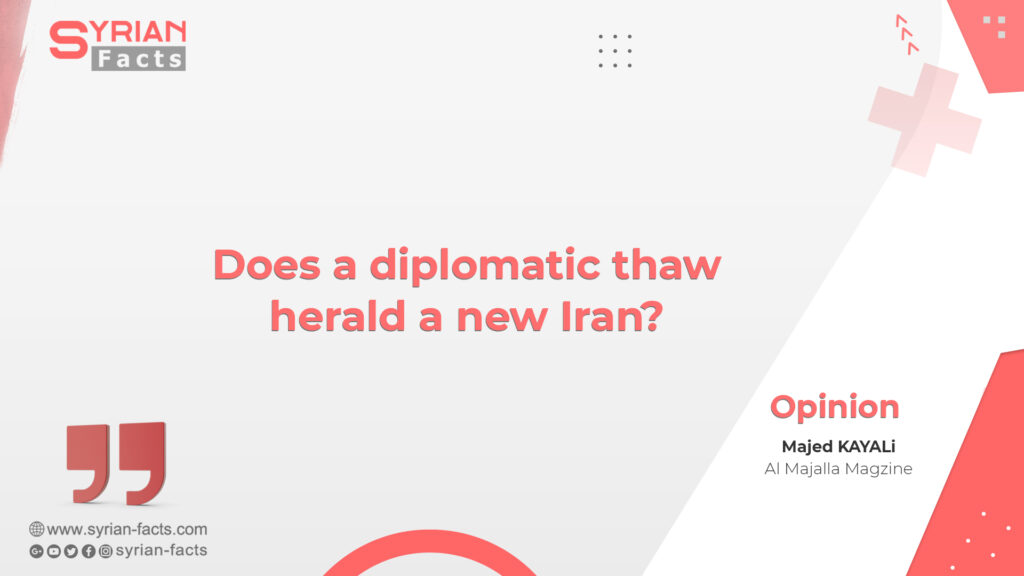In the wake of a Chinese-brokered agreement to restore diplomatic relations between the Kingdom of Saudi Arabia and the Islamic Republic of Iran, analysts have been keen to interpret what it means.
Amidst the flurry and excitement, pronouncements have been frenetic and starry-eyed. Some say this is the end of the world’s Iran problem. Some say the Saudis and the Iranians are now friends. Some say the brokerage announced China’s arrival and America’s departure. Most are wide of the mark.
Read more: Will the Saudi-Iran deal reshuffle the regional security deck?
True, the agreement is both notable and – to many – unexpected. True, it has given credence to China’s credentials as a world diplomatic player. And true, it is a turn in the right direction for Riyadh and Tehran. But what has it really changed?
Is it, as some say, a historic turning point in regional and international relations? Does it amount to a global strategic shift? Has it ended the influence of the United States in the Middle East?
Sifting rhetoric from reality
The answer to all of these questions is ‘no’. Analysts, in their haste, can delude themselves into thinking this means more than it does, but students of international relations have long been taught to look not at statements but at statistics, not at what they want to see but at what is.
The reasons these two arch enemies became bitter rivals in the first place have not disappeared. The factors underlying their clash are steep and complex, and nobody thinks the Iranian regime’s policies will suddenly change.
It will not stop trying to export the revolution, spread its model and influence, and deploy its sectarian militias in the Arab region, to create states within states, such as with the Houthis in Yemen, Hezbollah in Lebanon, or to a lesser extent, Zainabiyoun, Fatimiyoun, Asa’ib Ahl al-Haq, and the Popular Mobilisation Forces in Iraq and Syria.
Some analysts consider that the ostensible Saudi-Iranian rapprochement would weaken or annoy the United States and Israel, but it will not alter the perception of Iran from either, nor of Israel from Tehran.
The Islamic republic and the Jewish state will remain sworn enemies for the foreseeable future, but Iran – as we have seen – will ‘resist’ Israel in word only, despite Israel’s covert and overt attacks on both Iranian proxies and in Iran itself.
China’s world role
As to those who say the agreement sounds the death knell for American hegemony, they overlook the fact that in many ways this is already a multipolar world, with competing powers.
China, with its size, its vast economy, technological advances and web of trade trails, was already a global player before this deal. Yet for all the siren calls, the United States is still the world’s economically dominant nation.
Read more: Washington concerned but not alarmed over growing Saudi-China cooperation
Likewise, it is still the source of most innovations and transformations in science and technology, to say nothing of its military power: it spends three times as much on defence as does China, and its weaponry remains far superior.
In fact, China is more reliant on the West than these heady analysts would have us believe. It depends on European and American markets for its exports, and relies on Western technology, albeit to a lesser extent than previously. This helps explains why China has been reluctant to support Russia over Ukraine at the United Nations.
Rather than postulate on major global shifts, what the analysts should examine is the effect of the deal on Iran and the role it now wants to play, if indeed different.
Iran’s moment of reckoning
It is more likely that Iran’s agreement on diplomatic relations with Saudi Arabia is more about Tehran’s need to ‘come in from the cold’, to end its regional and economic isolation, and to re-establish some kind of basic relationship with the US.
Read more: Why global sanctions on Iran matter
The regime, which is famously resistant to change, could be looking to use this agreement as a bargaining chip or as a bridge, with one eye on nuclear negotiations.
After all, in some ways Iran has kept its nose dry. For instance, unlike the regimes in Syria, Belarus, North Korea, and Eritrea, it has not voted against UN resolutions condemning the Russian invasion of Ukraine.
In the Arab world, it is difficult to see what Iran could – or would – offer to the Kingdom of Saudi Arabia or to others, especially regarding its exploitation of the sectarian divisions in the region and the militias that act as its regional arms.
Any change in its politics towards the countries of the Gulf, Yemen, and the Arab Levant (Syria, Lebanon, and Iraq) would mean a political shift or coup in Iran itself. Until that happens, Riyadh and Tehran will remain locked in conflict.
In their statement, they talked about respecting each other’s sovereignty and refraining from interfering in the other’s internal affairs. Yet if Iran were genuinely to abide by that, all its geostrategic calculations would have to change.
It’s divide-and-rule tactics would have to be consigned to the dustbin of history, it would have to desert the sectarian militias it has created, and it would more than likely have to abandon its nuclear programme too. No one thinks that will happen.
Reliance on Washington
With Saudi Arabia soon to be diplomatically connected to Tehran, however, it is possible to argue that Riyadh might now have less of a need for the US which may add to existing tensions in Arab-American relations.
It certainly feels like a long time ago when US President George W. Bush, in the aftermath of 9/11, sought to disseminate democracy throughout the Arab world. This period of ‘peak US engagement’ in the Middle East is now just a memory.
Read more: 20 years after US invasion of Iraq, chaos and corruption reign
Until then, the US policy had been to protect the security and stability of friendly countries, ensure the security of Israel and the stability of oil resources, while preventing other nations from dominating the region.
Some worry that this China-led agreement may have dimmed confidence in America’s political will of Arab regimes already unsettled by perceived US silence over Iran’s nuclear ambitions (certainly compared to what it did in Iraq) and Washington’s indifference to Iran’s increasing influence in the region.
A more long-term concern is America’s desire to reduce its dependence on fossil fuels and replace them with clean green energy. Oil and gas-rich nations understandably wonder whether their security guarantees will be worth as much to Washington if it no longer needs their oil and gas.
Yet despite all this, relations between Arab countries – especially Saudi Arabia – and the United States are substantial. Neither can do without the other. Despite differences and tensions, they heavily depend on each other in several areas, not least the political, security, and economic fields.
The effect of the Saudi-Iranian diplomatic thaw therefore remains to be seen. It is in its early days. Iran’s next steps will be key, but only time will tell if it will alter its policies, role, behaviour, or alliances.
If it does, it would of course benefit not just the people of Iran, but the people of the Middle East as well.
Al Majalla Magzine





Be the first to write a comment.